- Introduction: Two Days to Find Something Authentic
- The Pattern I Started Noticing
- What I Wish I’d Known: Planning Cultural Experiences Like You Plan Hotels
- What I Researched: A Better Way to Book Cultural Experiences
- Why Cultural Experiences Matter (Beyond Sightseeing)
- My Friend’s Experience at the Temple
- When Wabunka Makes Sense
- Common Questions I Had (And You Might Too)
- How It Works
- Why I’m Comfortable Recommending This
- Things to Consider
- Final Thoughts
- Disclosure
- References
- About the Author
Introduction: Two Days to Find Something Authentic
My friend from Italy arrived in Tokyo last spring.
We had her hotel booked—I’d found her a beautiful traditional ryokan through Rakuten Travel. Her itinerary was set: Shibuya, Harajuku, teamLab, all the must-see Tokyo spots.
Everything seemed planned.
But the day after she arrived, she said something I wasn’t expecting:
“Miyabi, I want to do something… Japanese. Like, really Japanese.
Not just shopping and photos.
Can we do a tea ceremony? Or meditation at a temple? Something like that.”
I loved the idea.
As someone living in Tokyo, I’ve experienced tea ceremony and Zazen meditation myself—especially after the pandemic ended, when I was looking for ways to reset and find calm again.
I knew how powerful these experiences could be.
But here’s the problem: she was already here.
I had two days to find:
- An authentic experience (not a tourist trap)
- English-speaking instructors
- Available time slots during her trip to Kyoto
- Reasonable prices
I started Googling “Zazen meditation Kyoto,” “tea ceremony near Sanjusangendo.”
Dozens of results appeared.
Some looked legitimate. Some looked… questionable.
Prices ranged from ¥5,000 to ¥50,000 for similar experiences.
Availability? Unclear until I contacted them.
I spent hours comparing options, reading reviews in Japanese and English, emailing temples that sometimes didn’t respond for days.
Eventually, I found a temple near Sanjusangendo in Kyoto that offered Zazen sessions.
They had availability. They could accommodate English speakers. The price was reasonable.
It worked out.
But by the time I confirmed everything, I was exhausted.
And I thought:
“Why is this so hard?
People book hotels months in advance. They research restaurants weeks ahead.
But when it comes to cultural experiences—tea ceremonies, meditation, traditional crafts—most people don’t even think about it until they’re already in Japan.
And then, like me, they scramble to find something authentic at the last minute.”
There should be a better way.
The Pattern I Started Noticing
After that experience with my friend, I started paying attention.
In beauty and travel communities online, I kept seeing the same questions:
- “Where can I do a real tea ceremony in Tokyo?”
- “Is there a temple that offers Zazen for English speakers?”
- “I want to try Kintsugi—how do I find a class?”
The pattern was clear:
People want these experiences.
But they don’t know how to find them until they’re already in Japan.
And by then, the good options are often fully booked, or they end up paying premium prices for rushed bookings, or—worst case—they skip it entirely because it feels too complicated.
Even as a Tokyo resident who speaks Japanese, I found it challenging.
For someone visiting from overseas, with limited time and no local knowledge?
It must feel nearly impossible.
What I Wish I’d Known: Planning Cultural Experiences Like You Plan Hotels
Here’s what I realized after that experience:
Cultural experiences deserve the same planning attention as hotels and flights.
Think about it:
You research hotels for weeks. You compare prices, read reviews, check locations.
You book flights months in advance to get the best deals.
But tea ceremonies? Zazen meditation? Calligraphy lessons?
Those get figured out “when we get there.”
The problem with that approach:
- Limited availability – The best instructors and most authentic venues fill up weeks ahead, especially during peak seasons
- No price comparison – When you’re booking last-minute, you can’t compare options properly
- Quality uncertainty – Without time to research, you might end up at a tourist-focused experience that feels rushed and superficial
- Language barriers – Many traditional venues don’t advertise in English or require complex booking processes
- Scheduling conflicts – The experience you want might not align with your itinerary when booked at the last minute
My friend got lucky. We found something authentic that fit her schedule.
But it didn’t have to be that stressful.
What I Researched: A Better Way to Book Cultural Experiences
After that scramble to find my friend’s Zazen experience, I started researching whether there was a better way.
That’s when I learned about Wabunka.
According to their official site, Wabunka is a platform specializing in private tours and expert-led cultural experiences across Japan.
What Makes It Different from Random Google Searches
Here’s what caught my attention:
Expert-led experiences, not tourist performances
Every activity is led by actual practitioners—tea ceremony masters, Zen monks, traditional craftspeople, sake brewers. Not actors performing for tourists, but people who’ve dedicated their lives to these practices.
Private or small group format
Most experiences are private or limited to small groups. This means personalized attention, the ability to ask questions, and a pace that works for you—not a rushed group tour.
English language support
Wabunka’s experiences prioritize English accessibility, with many featuring English-speaking guides or instructors. This helps ensure you can understand the deeper cultural significance without language barriers.
Clear pricing and availability
Prices are displayed upfront (ranging from ¥13,000 to ¥262,000 depending on the experience and group size). Availability is shown in real-time. No back-and-forth emails hoping for a response.
Curated, vetted options
Instead of sifting through hundreds of search results wondering which are legitimate, Wabunka has already curated and vetted their partners. The research is done for you.
The Range of Experiences
When I explored the site, I was surprised by the variety:
- Traditional arts: Tea ceremony, calligraphy, ink painting, Kintsugi
- Wellness: Zazen meditation at temples, mindfulness experiences
- Culinary: Sake brewery tours, sushi-making with master chefs, traditional sweets
- Crafts: Bonsai creation, chopstick making, paper lantern crafting
- Architecture: Private temple tours, historic building experiences
These aren’t activities you can just walk into. They require advance booking, coordination, and often special access.
Exactly the kind of experiences that are hard to arrange on your own, especially at the last minute.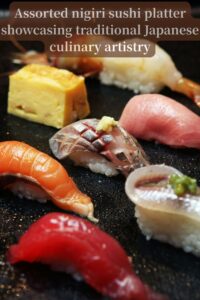 Photo by Tadahiro Higuchi on Unsplash
Photo by Tadahiro Higuchi on Unsplash
Why Cultural Experiences Matter (Beyond Sightseeing)
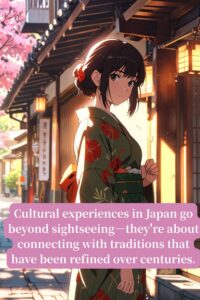
Before I talk about specific experiences, I want to address something:
“Isn’t this just for tourists who want to feel ‘exotic’?”
That’s what I used to think too.
But after experiencing tea ceremony and Zazen meditation myself—especially during the post-pandemic period when I was looking for ways to reset—I realized these practices offer something deeper.
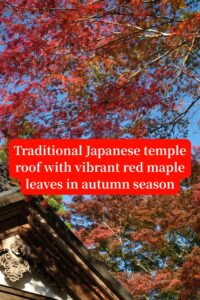 Photo by JP Sheard on Unsplash
Photo by JP Sheard on Unsplash
What I Learned from Sitting in Zazen
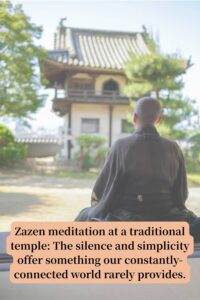
Right after the pandemic restrictions lifted, I tried Zazen meditation at a temple in Tokyo.
I’m Japanese, but I’d never done this before. Even in Japan, sitting meditation and formal tea ceremony aren’t “normal” anymore. Most of us grew up with chairs, not tatami.
Here’s what surprised me:
The discomfort is part of it
My feet went numb within 10 minutes (yes, even for Japanese people—seiza isn’t something we do regularly). But that physical discomfort forced me to stay present. I couldn’t drift into thoughts about my phone or my to-do list. I had to be there.
The silence was powerful
No music. No guided meditation app voice. Just sitting. The monk would occasionally walk through the room, gently correcting posture. That was it. And somehow, that simplicity cleared my head in a way I hadn’t experienced before.
It’s about “ma” (間)—the space between
In Japanese aesthetics, “ma” refers to the pause, the gap, the intentional emptiness. Zazen embodies this. It’s not about “doing” something. It’s about being in that space. And in our constantly connected world, that space feels revolutionary.
Tea Ceremony: More Than Just Drinking Matcha
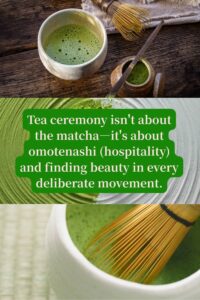
I’ve also experienced tea ceremony (chanoyu) a few times since the pandemic.
If you’ve had matcha before—maybe in a latte, or matcha chocolate—you might think you know what to expect.
But tea ceremony isn’t about the taste.
It’s about “omotenashi” (hospitality) and “wabi-sabi” (finding beauty in imperfection and impermanence).
Every movement is deliberate. The way the host prepares the tea. The way you receive the bowl. The way you turn it before drinking. The way you appreciate the ceramics.
It’s a practice in mindfulness that happens to involve tea.
And yes, matcha is popular worldwide now—which actually makes tea ceremony a perfect entry point. You already know the flavor. Now you can understand the philosophy behind it.
Why I Think These Belong in Your Travel Plans
Shopping in Harajuku? Amazing.
Photos at Shibuya Crossing? Iconic.
But spending 90 minutes sitting in meditation at a centuries-old temple, or learning the precise ritual of tea preparation from a master?
That’s what you’ll remember years later.
Not because it was exotic or photogenic, but because it gave you a window into a different way of thinking about time, beauty, and presence.
And honestly? In our overstimulated world, that feels increasingly valuable.
My Friend’s Experience at the Temple
Remember my Italian friend who wanted “something really Japanese”?
After I found that Zazen session near Sanjusangendo in Kyoto, she went.
Here’s what she told me afterward:
“Miyabi, that was incredible.
I didn’t expect it to be so quiet. I thought there would be chanting or music or something.
But it was just… sitting. And it was so hard—my legs were dying (she laughed)—but also, I don’t know how to explain it… peaceful?
The monk barely spoke, but when he did, it felt significant.
And the temple itself—the tatami, the garden view, the incense—everything felt intentional.
It made me understand something about Japan that I couldn’t get from shopping or sightseeing.
I’m so glad we did this.”
That conversation stayed with me.
Because she was right.
Cultural experiences aren’t separate from your Japan trip—they complete it.
They give context to everything else you see.
But only if you can actually access them.
And that’s where the challenge has always been.
When Wabunka Makes Sense
Based on my experience helping my friend and my own research, here’s who would benefit from a platform like Wabunka:
If You Want to Plan Ahead (Not Scramble Last-Minute)
- ✅ Book cultural experiences with the same confidence as hotels
See availability, compare options, and secure your spot before your trip—not while you’re already in Japan trying to figure it out - ✅ Coordinate with your itinerary
Know exactly when and where your tea ceremony or meditation session is, so you can plan the rest of your day around it - ✅ Avoid the “everything’s fully booked” disappointment
During cherry blossom season, autumn leaves, or holiday periods, popular experiences fill up weeks ahead—planning early means you don’t miss out
If You Want Quality Over Convenience
- ✅ Learn from actual masters, not performers
Tea ceremony taught by someone who’s practiced for decades, not an actor in traditional costume giving a shortened “tourist version” - ✅ Private or small group attention
Ask questions, go at your own pace, get personalized guidance—not get rushed through with 30 other tourists - ✅ Access experiences that aren’t publicly advertised
Many traditional venues don’t have English websites or easy booking systems. Wabunka has already built those relationships
If You Want More Than Surface-Level Tourism
- ✅ Understand the “why” behind the rituals
With English-speaking guides, you learn the philosophy and history—not just go through the motions - ✅ Experience wabi-sabi and omotenashi firsthand
These aren’t just words you read about—they’re embodied in how tea is served, how a garden is designed, how a meditation space is arranged - ✅ Bring home more than photos
These experiences give you a lens for understanding Japan that stays with you long after your trip ends
Common Questions I Had (And You Might Too)
“Isn’t this too expensive?”
It depends on your perspective.
Prices range widely—from ¥13,000 for a group tsukudani-making experience to ¥262,000 for an exclusive private sushi course with museum tour.
But consider this:
My friend and I spent ¥8,000 each for that last-minute Zazen session I scrambled to find. It was good, but we had limited choice because of the timing.
If I’d booked through a curated platform ahead of time, I would have had more options—some cheaper, some with better-reviewed instructors, some that included additional elements like tea ceremony or a meal.
The question isn’t “Is it expensive?” but rather “What’s the value of a well-planned, authentic experience versus winging it and hoping for the best?”
“Can’t I just find these experiences myself?”
Yes, you can.
That’s exactly what I did for my friend.
It took me hours of research, countless emails, Japanese language skills, and local knowledge to find something authentic and available.
If you have the time and energy for that—go for it.
But if you’d rather spend those hours enjoying your trip instead of coordinating logistics, having someone who’s already vetted the options makes sense.
“Do I need to know Japanese?”
No.
That’s one of the main advantages of booking through a platform like Wabunka—experiences prioritize English language accessibility.
The instructors either speak English directly, or there’s a translator present.
This matters more than you might think.
During my Zazen experience, the monk’s brief explanations about posture, breathing, and mindset were crucial. If I hadn’t understood Japanese, I would have missed the context that made the practice meaningful rather than just sitting uncomfortably for an hour.
“Is this only for first-time visitors to Japan?”
Not at all.
I’m Japanese, living in Tokyo, and I still found tea ceremony and Zazen valuable.
These aren’t “tourist activities” in the way that character cafes or theme parks are.
They’re practices that Japanese people engage with when seeking mindfulness, cultural connection, or artistic growth.
If anything, having lived in Japan your whole life without experiencing these things (like me) makes you realize: Modern Japanese life is as disconnected from traditional practices as life anywhere else.
These experiences reconnect you to something that’s easy to take for granted when you live here.
“What if my feet go numb during Zazen?”
They probably will (mine did, and I’m used to sitting on tatami more than most tourists).
Here’s the thing: That’s part of it.
It’s not about achieving perfect comfort. It’s about sitting with discomfort.
Most experiences offer cushions or modified seating for people who genuinely can’t do seiza (formal kneeling). Just ask.
And honestly? The slightly numb feet make for a better story later.
How It Works
If you’re planning a trip to Japan and want to include cultural experiences, here’s the approach I’d recommend based on what I learned:
Step 1: Browse Experiences by Interest or Location
🌸 Ready to explore authentic Japanese cultural experiences?
Browse tea ceremony, Zazen meditation & more →
You can filter by:
- City (Tokyo, Kyoto, Osaka, etc.)
- Experience type (tea ceremony, meditation, crafts, food)
- Duration (60-420 minutes)
- Price range
Each experience includes:
- Detailed description of what you’ll do
- Who will teach/guide you
- What’s included
- Available dates and times
- Price per person or per group
Step 2: Book in Advance (Not Last-Minute)
Here’s what I wish I’d done for my friend:
Book 2-4 weeks before your trip, especially during peak seasons (cherry blossom, autumn leaves, year-end).
This gives you:
- Full selection of available times
- Ability to coordinate with your hotel location
- No rushed decision-making
- Better prices (some experiences offer early booking benefits)
Step 3: Integrate into Your Itinerary
Treat these experiences like restaurant reservations:
- Schedule them for mornings or late afternoons (when shopping and sightseeing are less ideal)
- Allow buffer time before and after (especially for experiences in temples or traditional venues that require travel)
- Don’t pack too much into one day—cultural experiences are meaningful but can be mentally intensive
My friend’s Zazen session was at 8 AM. Perfect timing—she experienced it before the temple got crowded, then spent the rest of the day exploring Kyoto.
Step 4: Come with an Open Mind
These experiences ask something of you:
- Patience – Rituals move at their own pace, not your schedule
- Presence – Your phone should be put away (actually, most places require this)
- Discomfort tolerance – Whether it’s sitting on tatami, learning a new skill, or confronting your own restlessness, there will be moments of awkwardness
But that’s precisely what makes them memorable.
Why I’m Comfortable Recommending This
I’m always careful about recommendations—especially for something as personal as cultural experiences.
Here’s why I feel confident suggesting Wabunka as a resource:
It Solves the Problem I Experienced
Remember my scramble to find my friend’s Zazen experience?
Hours of research, uncertain quality, last-minute availability checks, language barriers.
A curated platform with vetted experiences, clear pricing, and advance booking would have saved me all that stress.
If I could go back, I would have booked through a service like this instead of piecing it together at the last minute.
The Experiences Are Led by Actual Practitioners
According to Wabunka’s site, their experiences are led by:
- Tea ceremony masters with decades of practice
- Zen monks at active temples
- Traditional craftspeople (Kintsugi artists, calligraphers, bonsai masters)
- Sake brewers and sushi chefs with generational expertise
These aren’t actors playing roles. These are people who’ve dedicated their lives to these practices.
That distinction matters.
They Handle the Complexity
Booking a traditional experience directly often requires:
- Japanese language communication
- Understanding cultural etiquette for booking (some temples prefer phone calls, not email)
- Navigating unclear pricing
- Confirming English availability
Wabunka has already done this coordination work. You book online, get confirmation, show up at the designated time.
Simple.
Transparent Pricing and Policies
When I was searching for my friend’s Zazen session, one of the most frustrating aspects was unclear pricing.
Some sites showed one price, then mentioned additional fees for English guidance.
Others didn’t list prices at all—you had to inquire.
Wabunka displays all costs upfront. What you see is what you pay.
There’s also a clear cancellation policy, which gives you flexibility if your travel plans change.
Things to Consider
I want to be honest about when booking through a platform like this makes sense and when it might not.
✅ Wabunka Makes Sense If:
- You’re planning your trip in advance
If you have 2+ weeks before your trip, you have time to browse, compare, and book the experiences that interest you most - You value curated quality over random finds
You want vetted instructors and authentic experiences, not a gamble on Google search results - You want English language support
Language barriers shouldn’t prevent you from understanding the deeper meaning behind these practices - You’re willing to invest in meaningful experiences
You see value in paying for expert-led cultural activities the same way you’d pay for a nice dinner or quality accommodations - You want to avoid last-minute stress
You’d rather have your cultural experiences confirmed ahead of time, not spend your vacation Googling and emailing
❌ Other Approaches Might Be Better If:
- You prefer spontaneous, unplanned experiences
Some travelers love the adventure of figuring things out on the fly. If that’s you, last-minute booking might feel more authentic - Budget is the absolute priority
You can potentially find cheaper options by booking directly with smaller venues or during off-peak times, though you’ll invest significant time researching - You speak Japanese and have local contacts
If you can navigate Japanese websites, make phone calls, and understand cultural booking etiquette, you can absolutely arrange these experiences yourself - You’re content with surface-level experiences
If you just want a quick “I tried tea ceremony” photo moment, free tourist information centers sometimes offer brief demonstrations
The key question: What’s more valuable to you—time and certainty, or the challenge of arranging everything yourself?
Neither answer is wrong. It depends on your travel style and priorities.
Final Thoughts
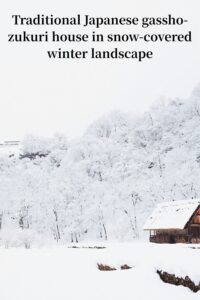 Photo by Fabian Mardi on Unsplash
Photo by Fabian Mardi on Unsplash
When my Italian friend asked for “something really Japanese,” I understood what she meant.
She’d seen the photos, watched the videos, read the guidebooks.
But she wanted to feel something.
To understand, even briefly, what it means to sit in stillness at a Zen temple.
To witness the deliberate grace of tea ceremony.
To connect with practices that have been refined over centuries.
Here’s what I’ve learned from my own experiences with tea ceremony and Zazen, and from helping my friend find hers:
These experiences aren’t add-ons to your Japan trip. They’re threads that tie everything together.
When you understand the concept of “ma” (intentional emptiness) through Zazen, you start noticing it everywhere in Japanese design—the space between objects in ikebana, the pauses in conversation, the minimalism in architecture.
When you experience the ritual of tea ceremony, you see omotenashi (hospitality) showing up in how you’re greeted at restaurants, how products are wrapped at stores, how even convenience stores train their staff.
These cultural practices aren’t museum pieces. They’re the foundation underlying modern Japan.
You just have to slow down enough to see it.
Before your next trip to Japan, consider this:
You’ll book your flights weeks in advance.
You’ll research hotels, compare neighborhoods, read reviews.
You’ll plan your shopping itinerary, your restaurant list, your photo spots.
But what about the experiences that will actually give you insight into Japanese culture—not just observations of it?
Those deserve the same planning attention.
Maybe even more.
You can avoid the last-minute scramble—frantically Googling “tea ceremony near me” or “where to meditate in Kyoto” after you’ve already arrived.
Planning just a bit ahead opens up better options.
If the planning feels complex, that doesn’t mean you have to give up.
Why not explore your options now? Booking in advance means you can focus on enjoying the experience during your trip. And if you come with an open mind, it’s likely to become a special memory.
Your feet might go numb.
Your mind might wander.
But you’ll leave with something you can’t get from shopping or sightseeing:
A moment of genuine connection with a culture that values presence, beauty in imperfection, and the art of slowing down.
🌸 Ready to explore authentic Japanese cultural experiences?
Browse tea ceremony, Zazen meditation & more →
Your Japan trip deserves more than just surface-level tourism.
Another Travel Planning Tip: To make the most of your cultural experiences, comfortable accommodations matter too. Check out my previous article on accessing Rakuten Travel for booking stays in Japan—it shares insights on planning a comfortable visit.
Disclosure
This article contains affiliate links. If you book an experience through Wabunka via the links in this article, I may earn a small commission at no additional cost to you. This helps support GlowCache and allows me to continue sharing insights about Japanese culture, beauty, and wellness.
I have personally experienced tea ceremony and Zazen meditation (post-pandemic in Tokyo), and I helped my Italian friend find and book a Zazen session near Sanjusangendo in Kyoto during her visit. I spent hours researching options for her, which is why I now recommend planning these experiences in advance through curated platforms like Wabunka.
Thank you for your support!
References
- Wabunka Official Site:
 Wabunka | Private Tours & Expert-Led Experiences in JapanPull back the curtain on the real Japan with exclusive private tours and expert-led experiences.
Wabunka | Private Tours & Expert-Led Experiences in JapanPull back the curtain on the real Japan with exclusive private tours and expert-led experiences. - Personal experiences: Zazen meditation (Tokyo, post-pandemic), Tea ceremony (Tokyo), assisting friend with Zazen booking (Kyoto, near Sanjusangendo)
- Research on traditional Japanese cultural practices and their contemporary relevance
- Conversations with international visitors about their Japan travel planning experiences
About the Author
Miyabi | GlowCache Editor-in-Chief
Tokyo-based beauty and wellness enthusiast exploring the intersection of Japanese traditions, mindfulness, and modern life. Passionate about helping international visitors discover authentic cultural experiences in Japan.
GlowCache – Bringing Japanese Beauty and Culture to the World 🌸
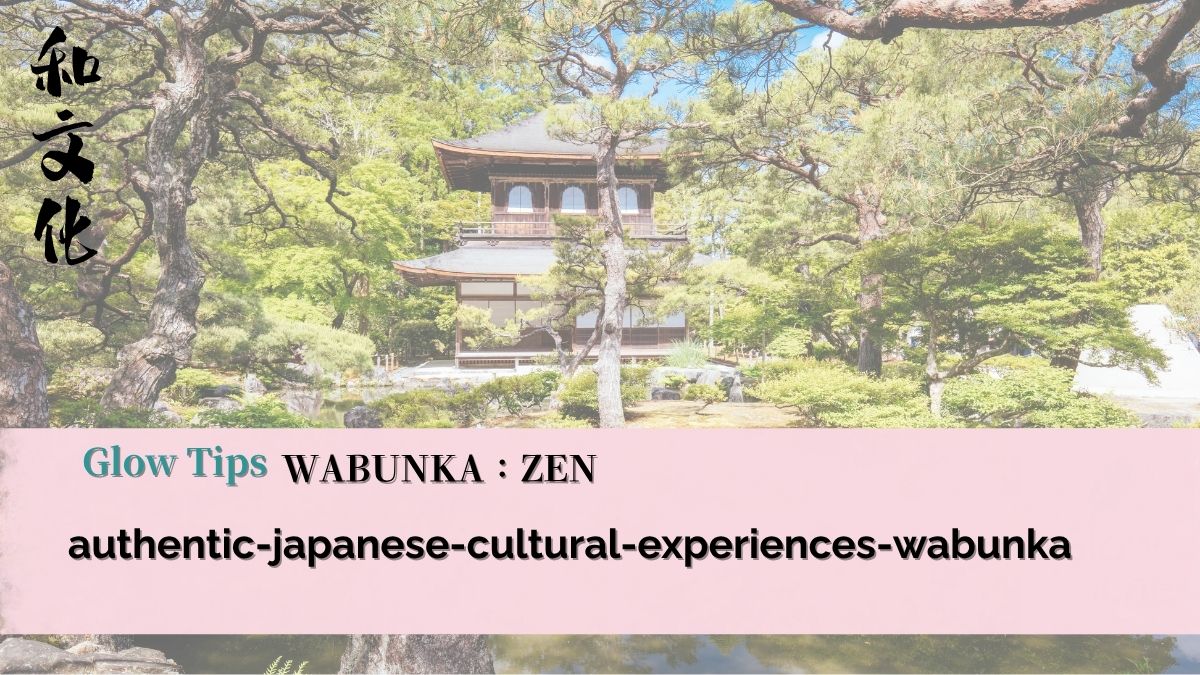
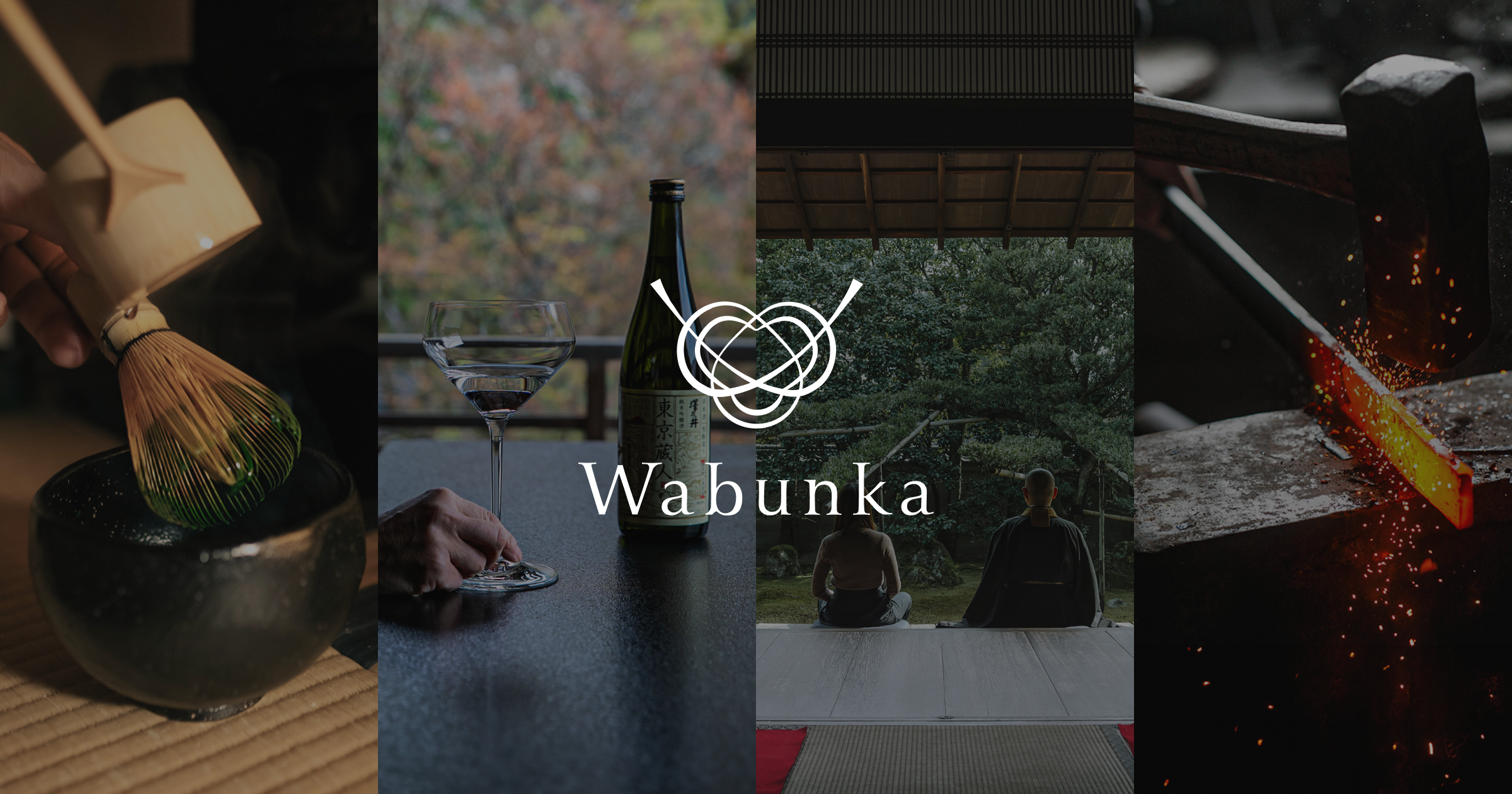


コメント